2020 is turning into a year to remember! Our year began with the global pandemic, and now we’re all trying to manage it. Let’s take a look at three lessons in 2020, start your planning of next year’s projects and remain optimistic that 2020 will be a year to remember, but not all negative!
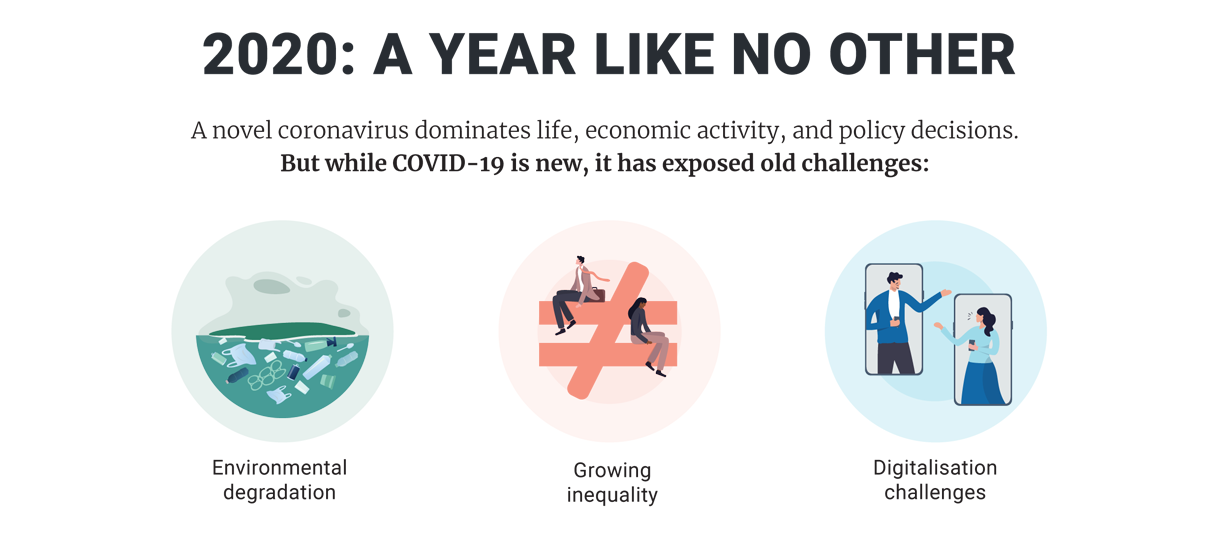
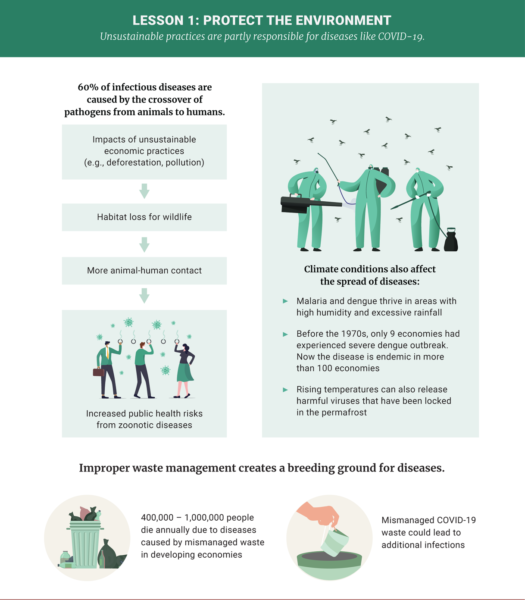
Lesson 1: Protect the environment
60% of infectious diseases are caused by the crossover of pathogens from animals to humans.
Impacts of unsustainable economic practices such as deforestation, pollution are partly responsible for diseases like COVID-19. In addition, climate conditions are also one of the reasons that affected the spread of diseases:
- Malaria and dengue thrive in areas with high humidity and excessive rainfall
- Before the 1970s, only 9 economies had experienced severe dengue outbreak. Now the disease is endemic in more than 100 economies
- Rising temperatures can also release harmful viruses that have been locked in the permafrost
Moreover, mismanaged COVID-19 waste could lead to additional infections
- 400,000 – 1,000,000 people die annually due to diseases caused by mismanaged waste in developing economies
- Mismanaged COVID-19 waste could lead to additional infections.
Lesson 2: Address rising inequality
COVID-19 has been hardest on the most vulnerable in our societies: The poor, women, the youth, the least educated and skilled, minorities, indigenous peoples, and other vulnerable groups, for example:
- Unable to afford healthcare
- Hold precarious jobs
- Lack access to infrastructure and technology
On the other hand, an existing problem worse has been made by the pandemic. Decades of economic growth have resulted in increasing affluence and poverty reduction, but its distribution has been far from equitable: In 30 years, more than 50% of income gains have gone to the richest quarter of the population; the poorest quarter got 4%. It has been disrupting access to education and skills training can scar future career paths resulting in lower wages, fewer career development opportunities, and diminished prospects for better jobs.
In addition, nCov also has exacerbated existing gender inequalities as women are more likely to
- Be employed in jobs that require face-to-face interactions
- Be engaged in informal employment, with no social protection
- Be disproportionately burdened with household chores and unpaid care.
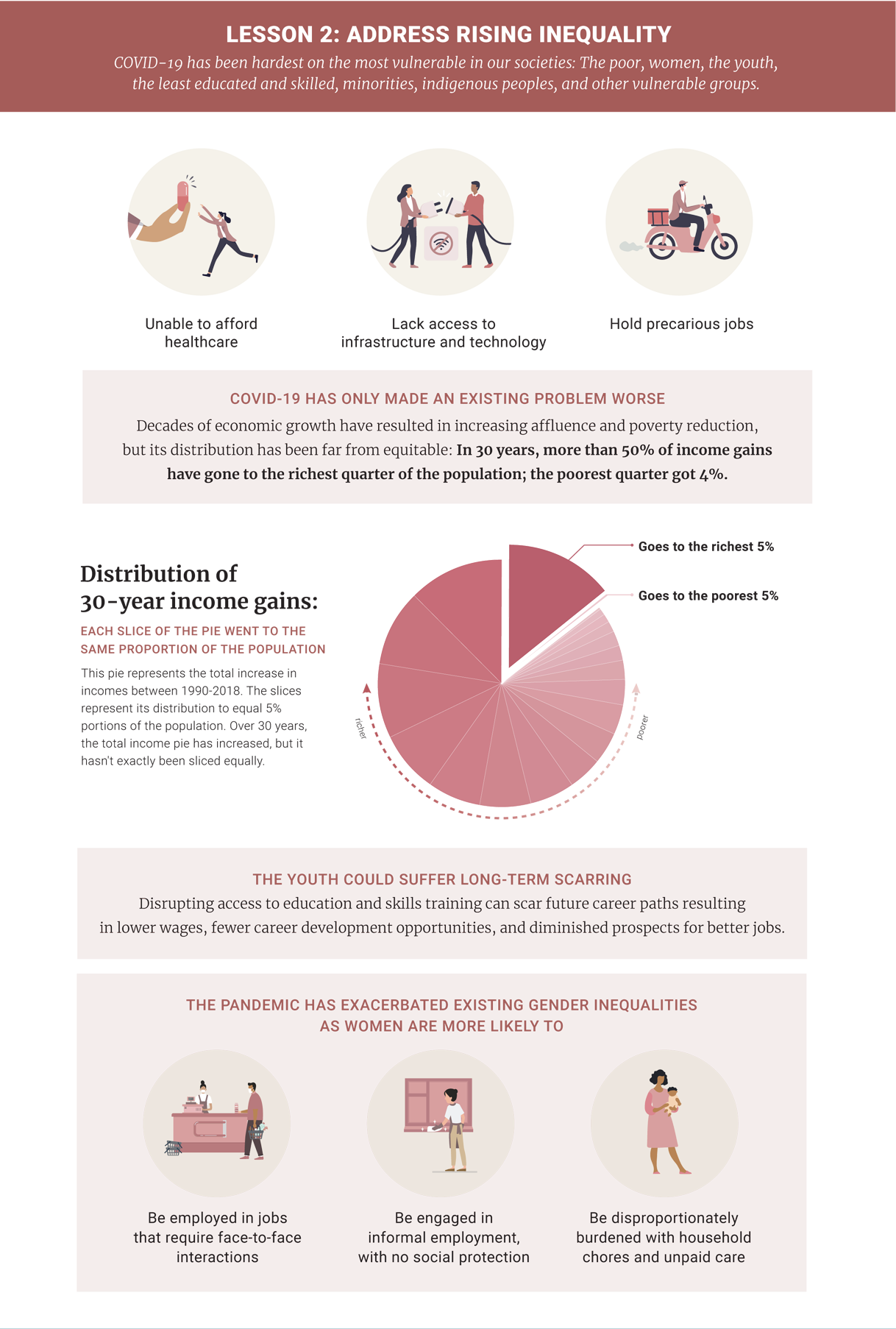
Lesson 3: Make digital work for all
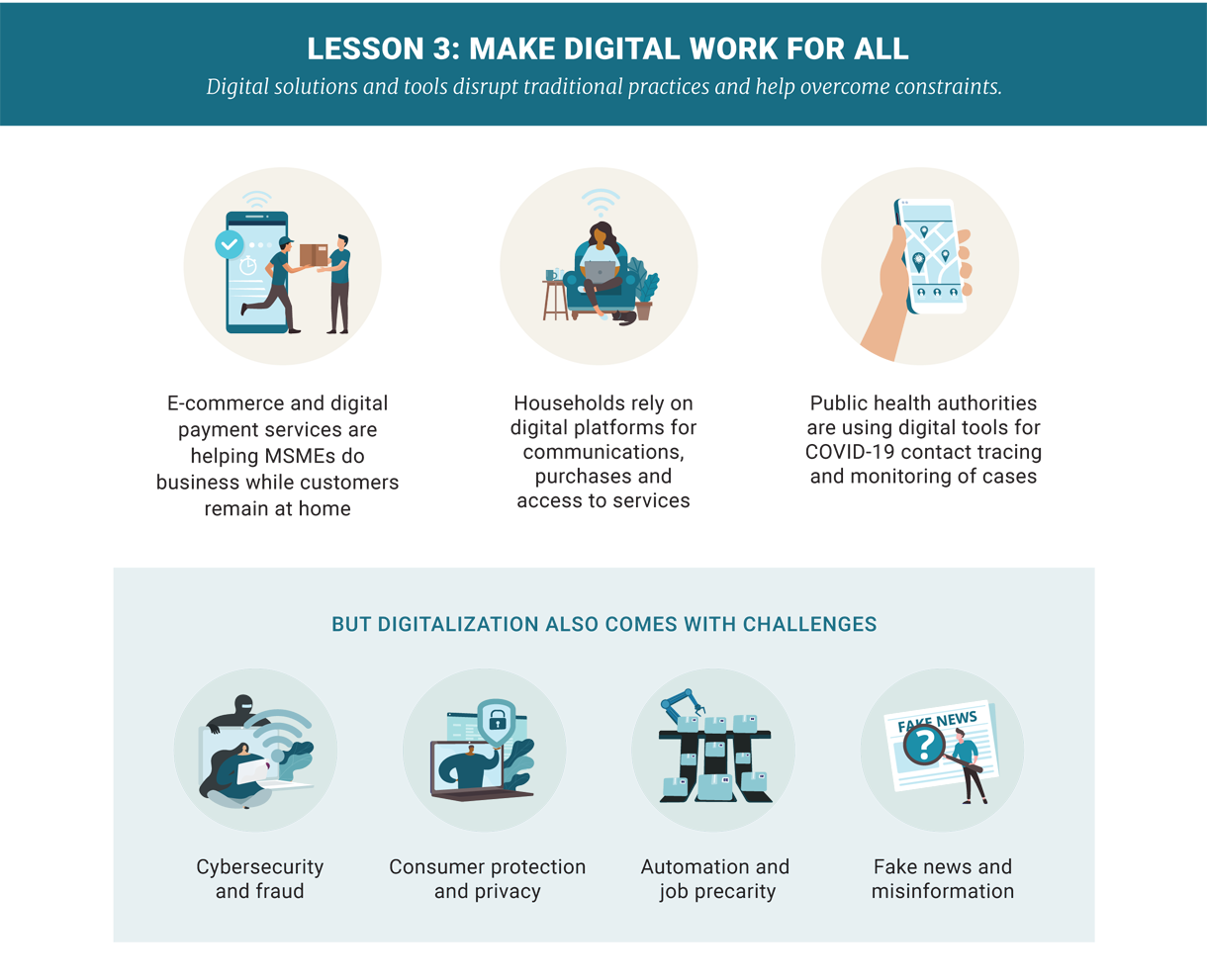
Digital solutions and tools disrupt traditional practices and help overcome constraints, for example:
- E-commerce and digital payment services are helping MSMEs do business while customers remain at home
- Households rely on digital platforms for communications, purchases and access to services
- Public health authorities are using digital tools for COVID-19 contact tracing and monitoring of cases
However, digitalization also come with challenges such as:
- Cybersecurity and fraud
- Consumer protection and privacy
- Automation and job precarity
- Fake news and misinformation
Maybe you’re interested in:
Intern Experience: Interning Abroad When The Pandemic Hit
Ten Business Predictions For 2021
So what can economies do?
There are many ways to rebound the economy from three lessons in 2020 above but we should focus on:
- Invest in green jobs and infrastructure, and internalize environmental impact into economic production and consumption
- Ensure equitable access to healthcare, education, infrastructure, and technology
- Maximize the potential of the digital economy, while tackling its challenges
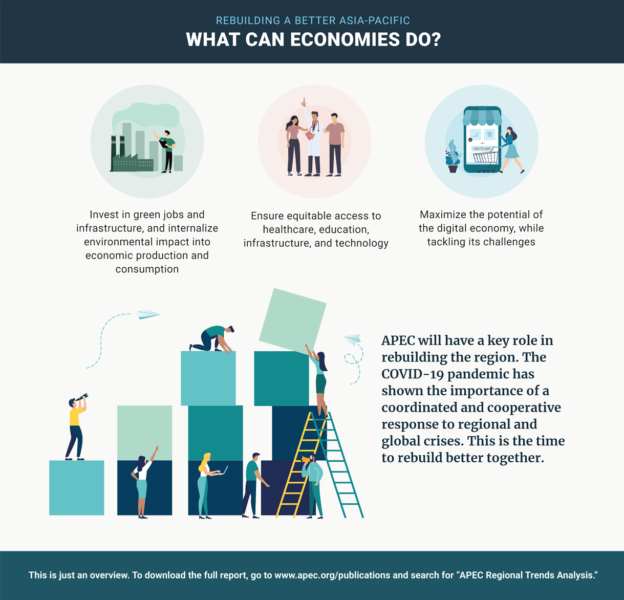
These are three outstanding lessons in 2020. In conclusion, the COVID-19 pandemic has shown the importance of a coordinated and cooperative response to regional and global crises. This is the time to rebuild better together!
Source apec.org

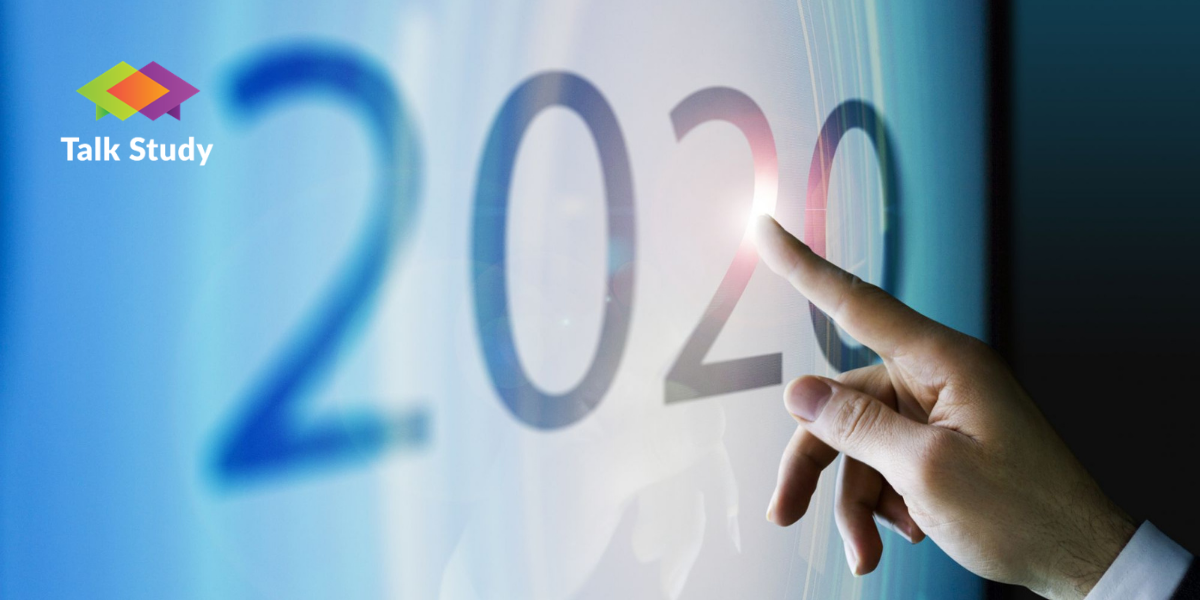


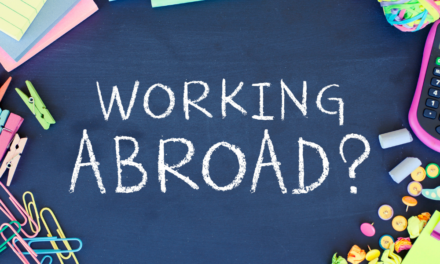

Recent Comments